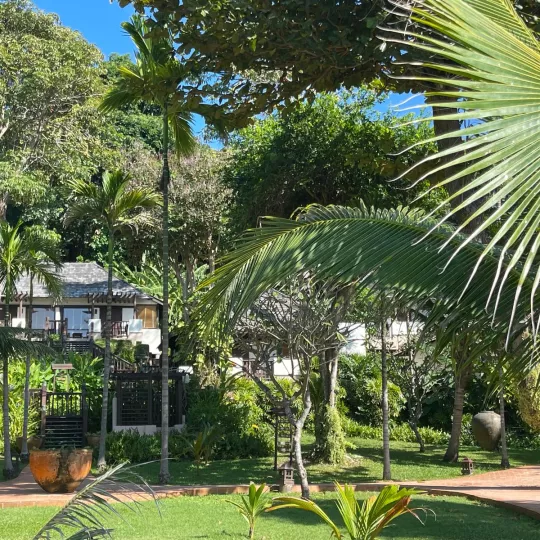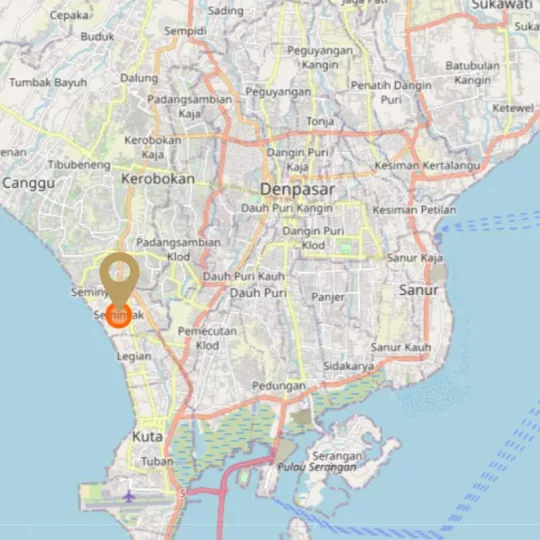Thailand - How to Buy Property as a Foreigner?
9 February 2025

Purchasing real estate in Thailand comes with specific characteristics and restrictions regulated by the country's legislation.
Legal Framework
Key legal acts governing foreign ownership of real estate:
- Land Code
- Condominium Act
- Civil and Commercial Code of Thailand
- Foreign Business Act
Property Ownership for Foreigners
Condominium Ownership
- Foreigners are allowed to own condominium units provided that no more than 49% of the total area of the building is owned by foreigners.
- Required Documents for Purchase: Passport, visa, proof of fund transfer from abroad (Foreign Exchange Transaction Form).
- Pay attention to the regulations of the management company concerning the maintenance and use of the property.
Land Ownership
Direct land ownership by foreigners is prohibited. However, there are several legal alternatives:
- Long-term Leasehold: Up to 30 years with the possibility of renewal. Lease agreements can be registered with the Land Department.
- Establishing a Thai Company: Limited to a maximum of 49% foreign ownership. It is crucial to ensure the company’s legitimacy and compliance with corporate governance laws.
- Foreign Investment: Investments of 40 million THB or more may grant the right to own up to 1 Rai (1,600 m²) of land for residential purposes, subject to approval from the Ministry of Interior.
Legal Due Diligence for Property
- Title Deed Verification (Chanote): Confirms land ownership rights. Ensure the Chanote is an official document registered with the Land Department.
- Legal Due Diligence: Checking for encumbrances, debts, registrations, including potential legal disputes.
- Seller Verification: Confirm that the seller has legal rights to sell the property and that there are no disputes related to the asset.
Real Estate Purchase Process
- Preliminary Due Diligence: Selection of the property and legal verification.
- Reservation Agreement: Signing the agreement and paying a deposit. Pay attention to the deposit refund conditions.
- Sales and Purchase Agreement: Legal formalization of the transaction. Include all conditions regarding the rights and obligations of both parties.
- Fund Transfer: Foreign buyers must transfer funds from abroad, specifying the purpose of the transfer to confirm the legality of the funds.
- Registration of Ownership: At the Thai Land Department. Both parties or their legal representatives with a power of attorney must be present.
Taxes and Fees
- Registration Fee: 2% of the registered property value.
- Stamp Duty: 0.5% (under certain conditions, e.g., if the property has been owned for more than 5 years).
- Capital Gains Tax: Calculated based on the ownership period and property value. It may vary depending on the seller's residency status.
- Property Tax: Annual tax depending on the property usage (residential, commercial, or agricultural).
Financial Aspects and Foreign Exchange Control
- Foreign Exchange Control: All international transactions related to property purchases must be documented for tax purposes and ownership registration.
- Mortgages for Foreigners: Rarely available, but possible under certain conditions with Thai banks.
Recommendations for Foreign Buyers
- Hire a Licensed Lawyer: For document verification and legal support.
- Market Research: Compare prices, analyze infrastructure, and check the reputation of developers.
- Risk Mitigation: Do not sign documents without fully understanding them. Always request translations and legal reviews.
- Document All Payments: Keep receipts and proof of transfers.
- Consider Property Insurance: Protects against risks related to property damage or natural disasters.



